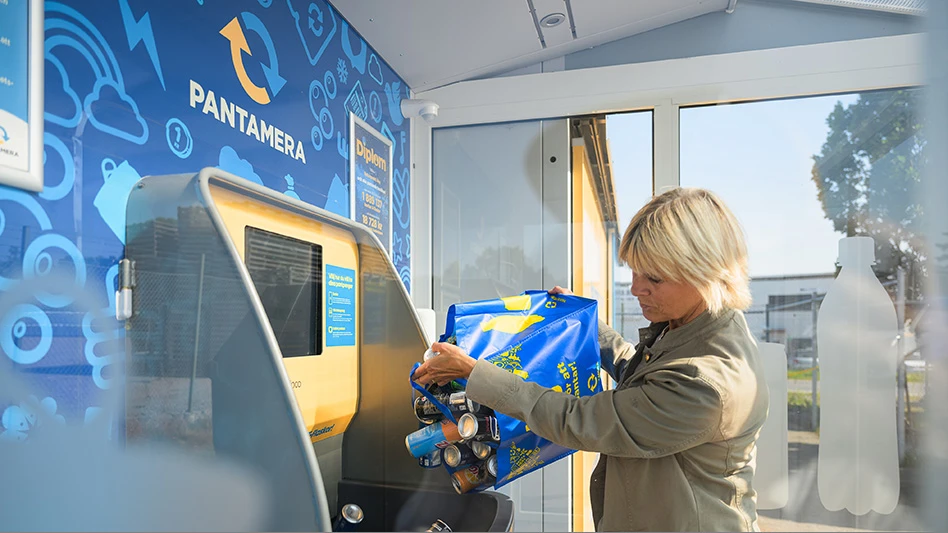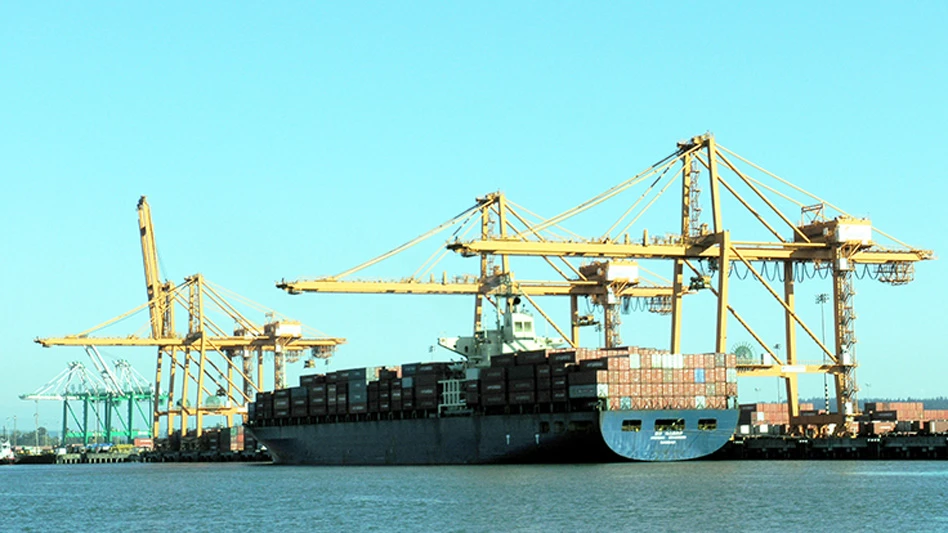
Marine debris might be one of the greatest environmental challenges of this generation and certainly is among the most visible. The negative impacts and images of uncollected plastics in marine environments have had a tremendous effect on how the general public perceives plastics. The projections about the
At present, two prevailing philosophies on how to address the environmental challenges of litter and marine debris are being offered: Eliminate products that are frequently found in litter or focus on expanding the recovery of plastic products to prevent litter altogether.
Taking a systemwide approach to solving the resource management problem allows for the selection of the most efficient materials to perform the job, pairing those products with the end-of-life treatment option that yields the best environmental and economic outcome.
Addressing the fundamental problem
As the debate about marine debris has progressed with these diverging approaches, a separate fundamental question seems to be emerging: Is marine debris the problem we should be solving? Or, is marine debris a symptom of a larger problem? While this might seem like splitting hairs, the question one asks leads to very different approaches and outcomes.
If you believe marine debris is the problem, reasonably it becomes a material problem. However, if you believe marine debris is a symptom of a larger problem—inefficiencies in recovery systems—then the problem becomes solving system inefficiencies. These are very different problems that require very different approaches.
For those who believe we are solving a marine debris problem, it’s understandable why the most visible materials are targeted. Bans of all varieties of plastic products are being considered at all levels of government. If successful, those bans will take a handful of plastic products off the market. Plastic bags and straws are proverbial drops in the bucket in terms of plastics production and the amount of litter found in the environment across all materials.
Once banned, those plastic items presumably will be replaced with alternative materials designed to serve the same functions. In many cases, those materials will have a larger environmental footprint, as plastics often prove to be among the most-efficient materials through the life cycle stages of extraction, production, transportation
Those who see marine debris as a symptom of a larger problem of system inefficiencies look at full life cycle impacts and recovery systems that optimize all inputs and outputs—maximizing resource management efficiency across the board. This is known as sustainable materials management (SMM).
Taking a systemwide approach to solving the resource management problem allows for the selection of the most-efficient materials to perform the job, pairing those products with the end-of-life treatment options that yield the best environmental and economic outcome. Industrial ecology is all about managing the inputs and outputs of a system most efficiently. Leakage from a system, particularly one on the magnitude of today’s marine debris situation, is a sign of great inefficiency.
Now, the question becomes: How do we meaningfully and expediently solve the inefficiencies?
For the Plastics Industry Association (PLASTICS), the first step was adopting an official policy statement supporting SMM as the preferred policy framework.
Supporting SMM

PLASTICS recognizes we are at a pivotal time in the marine litter discussion. With increasing discussion of various policy options, such as bans, that only address the marine debris symptom, the industry felt it was a critical moment to express the preference for SMM, which seeks a solution for the underlying problem.
PLASTICS officially adopted SMM as a policy position in April of this year. The goals of taking an official position on SMM were threefold:
- to clearly state what the plastics industry is for in terms of the policy approach to addressing the issue of marine debris and, more importantly, the broader picture of resource management;
- to show our commitment to advancing the sustainability of our products goes far beyond narrow-impact solutions, such as bans; and
- to align ourselves with the policy approach of the federal government and an increasing number of state governments, such as Oregon, that
are taking a holistic approach tomanaging all resources.
As a result, the industry adopted a statement to serve as the guiding principles of our advocacy work, not only in recycling and recovery but also in product design and material selection.
PLASTICS’ SMM statement, which was overwhelmingly approved by the association’s leadership, reads: “Taking a systemic approach to
Bans on plastic products as a policy strategy are singular in purpose and do nothing to ensure that the value of all other plastic products in use is extended and brought back into the manufacturing cycle.
Finding the best use

Litter mitigation is just one priority for the plastics industry. A second and equally important priority is ensuring that plastic products are put to their highest and best use after they have fulfilled their initial purposes. This means creating opportunities for plastic molecules to be used more than once.
Bans on plastic products as a policy strategy are singular in purpose and do nothing to ensure that the value of all other plastic products in use is extended and brought back into the manufacturing cycle. Policy strategies that expand recovery opportunities serve multiple priorities. They create new opportunities to divert materials, further preventing marine litter, as well as create new opportunities to channel materials into becoming a resource for a new product or process.
To further demonstrate our specific commitment to addressing the marine debris crisis as part of this larger strategy, PLASTICS approved the following marine debris statement, laying out the industry’s actions to address the inefficiencies of our current recovery system: “The health of our oceans and waterways is critically important to the well-being of the global community. PLASTICS believes uncollected plastics do not belong in the marine environment. Plastics offer many sustainability advantages that can significantly reduce greenhouse gasses, water consumption
“The plastics industry is committed to preventing and mitigating marine debris. PLASTICS recognizes that marine debris is a global issue and partners with other associations, nongovernmental organizations and intergovernmental authorities to coordinate efforts to strengthen recovery systems around the globe and prevent the loss of any plastics, all of which are valuable, into the environment.
“PLASTICS supports data-driven research efforts that identify opportunities to meaningfully address marine debris. These opportunities include, but are not limited to:
Sponsored Content
Labor that Works
With 25 years of experience, Leadpoint delivers cost-effective workforce solutions tailored to your needs. We handle the recruiting, hiring, training, and onboarding to deliver stable, productive, and safety-focused teams. Our commitment to safety and quality ensures peace of mind with a reliable workforce that helps you achieve your goals.
- educating manufacturers and the public to prevent litter;
- expanding collection opportunities;
- developing new end markets that increase demand for recycled plastics;
- promoting the design of plastic products in a way that facilitates recovery;
- promoting cleanups; and
- ensuring plastics are managed properly at manufacturing sites through programs like Operation Clean Sweep and Zero Net Waste.
“PLASTICS believes that together we can address this important challenge by supporting work in all of these areas and engaging the entire plastics supply chain to increase awareness, leverage knowledge and maximize the impact of our efforts to combat marine debris.”
We recognize that the marine debris problem is bigger than straws, bags and plastic utensils, and we hope that other voices in the marine debris discussion do as well.
We recognize that the marine debris problem is bigger than straws, bags and plastic utensils, and we hope that other voices in the marine debris discussion do as well. That is why we envision a world where, one day, every plastic product is properly recovered at the end of its life and sent to the highest and best use available.
We cannot achieve that vision alone and welcome collaboration with organizations and individuals who want to create lasting, positive change for materials management. The holistic approach is not the easy approach, but it is the right one for preserving the balance of all natural resources for generations to come.
For more information:
Plastics Industry Association, 202-974-5200, www.plasticsindustry.org
Get curated news on YOUR industry.
Enter your email to receive our newsletters.

Explore the August 2018 Plastics Recycling Issue
Check out more from this issue and find your next story to read.
Latest from Recycling Today
- Nucor expects slimmer profits in early 2025
- CP Group announces new senior vice president
- APR publishes Design Guide in French
- AmSty recorded first sales of PolyRenew Styrene in 2024
- PRE says EU’s plastic recycling industry at a breaking point
- Call2Recycle Canada, Staples Professional expand partnership
- Circular Services breaks ground on north Texas MRF
- Tariff uncertainty results in choppy nonferrous scrap flows







